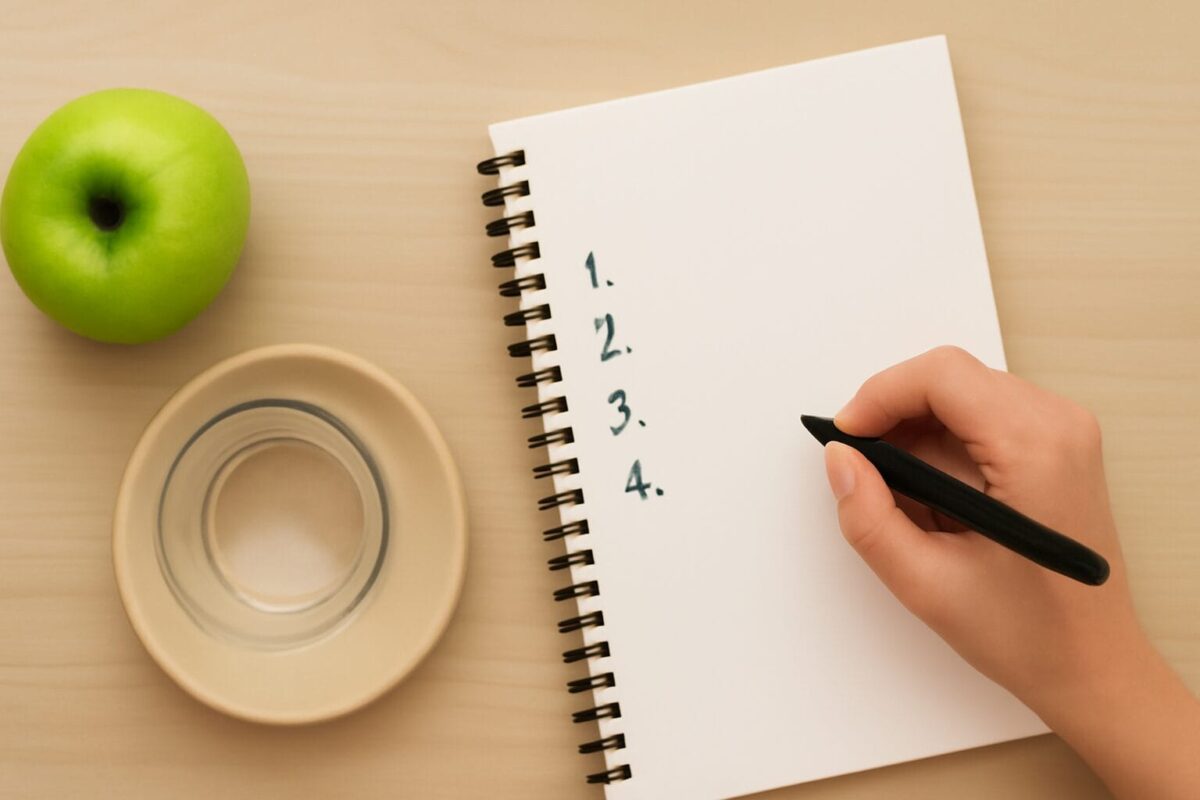Creating healthy habits is something we all aspire to, but making them stick is often the hardest part. Whether it’s exercising regularly, eating better, or practicing mindfulness, we’ve all started with enthusiasm, only to find that old habits quickly creep back in. The key to success isn’t just about willpower—it’s about understanding the science of habit formation and using strategies that make healthy habits easier to maintain in the long term.
In this article, we’ll explore how you can create healthy habits that last, turning positive actions into a natural part of your routine. By implementing small, consistent changes, you can develop habits that promote both physical and mental well-being for the long haul.
1. Start Small, Start Simple
One of the biggest mistakes people make when trying to build healthy habits is going all in too quickly. While it’s tempting to overhaul your life with big goals, doing so can be overwhelming and unsustainable. Instead, start small.
Choose one habit to focus on, and break it down into manageable steps. For example, instead of committing to an hour at the gym every day, start by walking for 10 minutes a day. Instead of drastically changing your diet overnight, start by adding one serving of vegetables to your meals.
Starting small makes the habit more achievable, and as you gain consistency, you can gradually increase the effort. Over time, small changes compound into long-term success.
2. Make It Part of Your Routine
Consistency is key to making a habit stick. The easiest way to do this is by attaching the new habit to something you already do regularly. This is called habit stacking.
For instance, if you already drink a cup of coffee every morning, use that time to practice deep breathing or read a page of a self-help book. If you brush your teeth every night, use that as a trigger to do a short stretching session. By associating a new habit with an existing one, you make it more likely that you’ll stick with it.
The more integrated your new habit is into your daily routine, the less effort it will take to maintain.
3. Set Clear, Achievable Goals
When creating healthy habits, it’s important to be clear about what you want to achieve and set goals that are specific and measurable. Vague goals like “get fit” or “eat healthier” can feel ungrounded, making it easier to lose focus.
Instead, create specific goals like “walk 10,000 steps per day” or “eat three servings of vegetables with lunch.” When you have a clear target, it’s easier to track your progress and stay motivated.
Make sure your goals are realistic. If your expectations are too high, you risk getting discouraged. It’s better to start with attainable goals and gradually increase the difficulty as you gain confidence and consistency.
4. Celebrate Small Wins
Building healthy habits takes time, and it’s important to acknowledge your progress along the way. Celebrate your small wins to stay motivated.
For example, if you made it through the week without skipping your workouts, reward yourself with a relaxing activity or a small treat. If you’ve managed to stick with your new habit for a month, treat yourself to something special. Celebrating milestones reinforces your commitment and helps you stay on track.
The key is to find rewards that are aligned with your goals. For example, if your goal is to eat healthier, reward yourself with a new recipe or a healthy snack you’ve been wanting to try.
5. Track Your Progress
Tracking your progress is a powerful tool in habit formation. When you can see how far you’ve come, it reinforces your commitment to the habit. It also allows you to identify patterns, which can help you adjust your approach if necessary.
Use a journal, an app, or a simple calendar to track your habit progress. Record the days you successfully followed through and note any challenges you faced. This visual reminder keeps you accountable and motivates you to keep going.
6. Be Patient and Forgive Yourself
One of the most important aspects of building lasting habits is patience. Change takes time, and setbacks are inevitable. Don’t let a few missteps derail your efforts. If you miss a day or fall off track, forgive yourself and get back on track the next day.
The goal is not perfection—it’s progress. Building a new habit is a journey, and it’s normal to encounter challenges along the way. By being patient and kind to yourself, you’ll maintain the motivation to keep moving forward.
7. Make It Enjoyable
Healthy habits shouldn’t feel like a chore. If you’re trying to develop a new habit, make it something you enjoy. The more fun and enjoyable the habit, the easier it will be to stick with.
For example, if you hate running but want to get more active, try dancing or taking a walk in nature. If you’re trying to eat healthier but dislike salads, find a few healthy meals you truly enjoy. The more you enjoy the process, the less effort it will take to maintain.
8. Build a Support System
Having a support system can make all the difference in sticking to new habits. Whether it’s a friend, family member, or online community, sharing your goals with others creates a sense of accountability and encouragement.
Find someone who shares similar goals and check in with them regularly. Or, join a fitness class, cooking group, or habit-building community to connect with others who are on the same path. Support systems provide motivation and offer guidance when you face challenges.
9. Focus on the Long-Term Benefits
When building healthy habits, it’s easy to get caught up in the immediate struggles or discomforts. However, it’s important to focus on the long-term benefits. Every small action you take today contributes to a healthier, more vibrant future.
Whether it’s the mental clarity from daily meditation or the strength from consistent exercise, remind yourself why you started in the first place. This long-term vision keeps you motivated and focused on the bigger picture.
Start Today, One Step at a Time
Creating healthy habits that last is about making consistent, small changes. It’s about being patient, setting achievable goals, and embracing the process. Don’t expect overnight results—success comes with time, persistence, and dedication.
Start with one habit that excites you and build from there. The key is to stay consistent and keep moving forward, no matter how small the steps may feel.
Embrace your journey of growth at PersonalOrb and keep making progress toward the best version of yourself, one habit at a time

